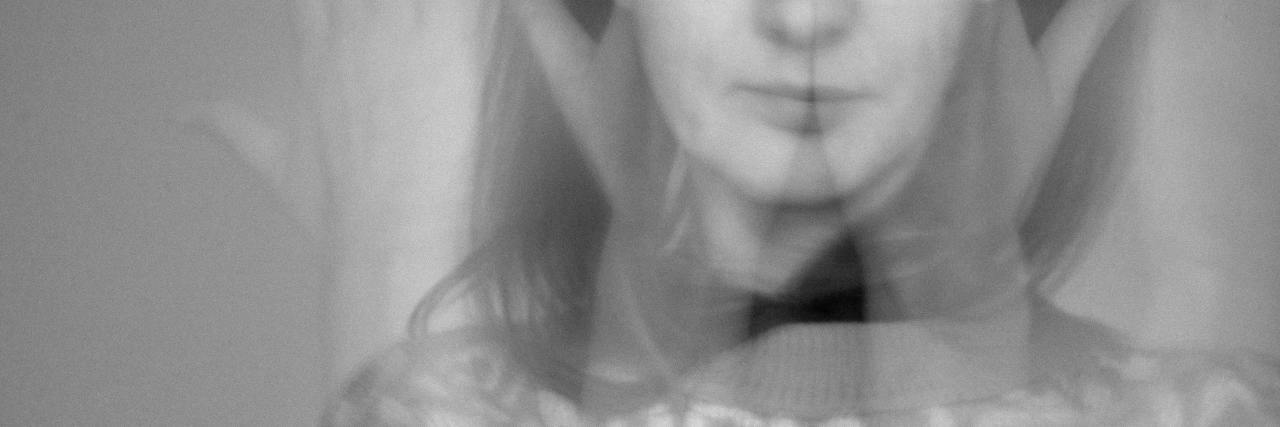You’re Not a ‘Failure’ If You Give Into OCD
Editor's Note
If you struggle with obsessive-compulsive disorder (OCD), the following post could be potentially triggering. You can contact the Crisis Text Line by texting “START” to 741-741. To find help, visit the International OCD Foundation’s website.
“I feel like a failure. I can’t even leave the house,” I said through tears to my partner, over the phone.
I was finally letting myself cry after letting stress build and build for several days. I drove home to Ohio this weekend, to visit my mom and a friend. I haven’t seen them in over a year. With COVID-19 vaccine distribution increasing and regulations lifting, it was about time. The problem is, after a year of barely going anywhere, I was majorly out of practice. There is the separation anxiety of leaving my cat, the loss of control over my environment, being in a somewhat unfamiliar place and also the fatigue of driving five-plus hours each way.
Most of the time I was home, I was anxious. I spent a lot of time napping in an effort to avoid this anxiety. Still, it was nice to see my mom and friend, and of course, my mom’s doggies. I ended up driving back to my apartment a day earlier than planned, though. I had stayed longer than obsessive-compulsive disorder (OCD) wanted me to, but staying overnight one more time wasn’t worth the continued stress. So, that is why, when I got home and was talking to my partner, I felt like a failure. I had resisted and felt the fear for a couple of days, choosing in dialectical behavior therapy (DBT) what we call “the middle path,” but in the end, I still had given into OCD.
And then I realized I had heard this kind of “failure talk” before. Not from myself, but from others with OCD. At conferences and webinars about OCD, I had heard so many others, in all stages of treatment and recovery, talk about feeling like a failure when they gave into their OCD. They talk about fear of relapse, and of being back at square one. I don’t know how I had been immune to these feelings for so long. I think it’s because though I’ve given into OCD plenty of times before while in recovery, this is the most intense my OCD has felt in years. It is still quite mild compared to when my OCD was most severe, in college, but this anxiety was big enough to make me worry about being back at that severity level again.
It is validating, though, to know I have heard others struggle with these thoughts of failing and fears of relapse. I had their seasoned responses in my head too. “This does not take away all of your progress.” “A lapse is not a relapse.” “A huge difference is now you have more tools to fight this.” It was so helpful to immediately have these thoughts populate my mind, from people I look up to. Not to mention, my partner also said something similar. He said, “So many people see you as a success story. This doesn’t negate that.”
It can be a lot of pressure to be a “success story” from OCD. When people look up to you as being in recovery, there is sometimes an assumption that you always do the exposure and never give into OCD. But I think it’s so important to continue speaking out about what recovery truly means. It does not mean complete freedom from OCD and anxiety. It does not mean doing the exposure every time you have an intrusive thought. Sure, most of the time OCD pops up, I am able to resist doing the compulsion, and often do an exposure. And this means, as a result, OCD pops up less often. Less of my day is taken up by OCD — maybe on average 5%, when it used to be 100%. But I am far from perfect. Clearly, given this weekend.
I am also far from being a failure though. I’m merely human, a human with some malfunctioning parts of her brain. And being mean to those parts of my brain only makes it harder to fight back against OCD. Self-compassion is one of the other not-so-secret secrets in recovery. My brain is just trying to keep me safe. Thank you, brain. And thank you to those with OCD who have spoken out about this before me. Hearing your compassionate responses reply in my mind helped me be compassionate to myself.
Morgan
Photo by Vika Strawberrika on Unsplash

